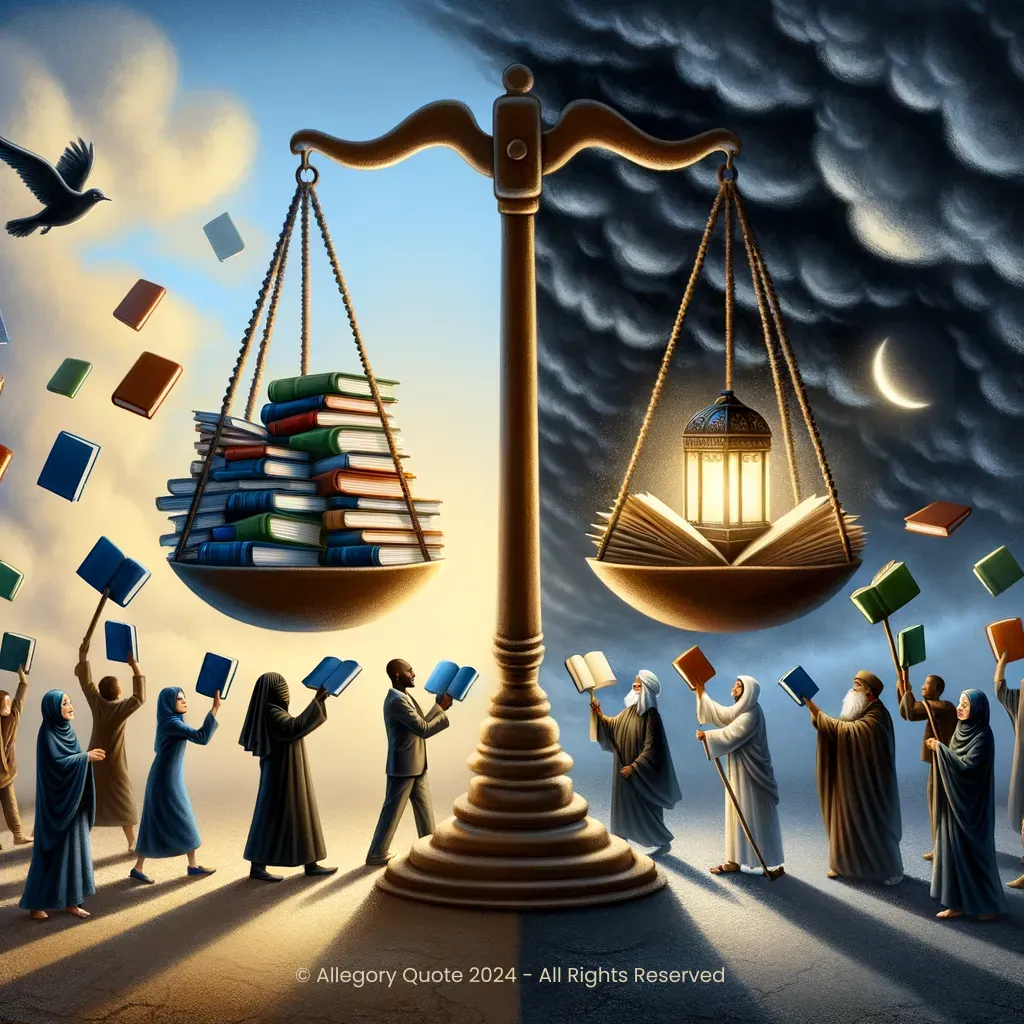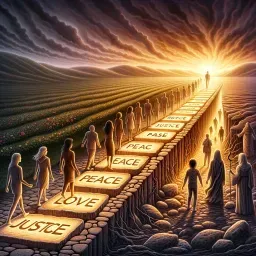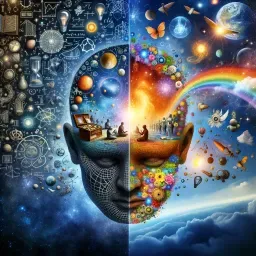Ignorance is the worst sin

0
0
0
0
- Meaning
- The meaning of the phrase "Ignorance is the worst sin" can be interpreted in various ways. Philosophically, it suggests that a lack of knowledge and awareness is at the root of many evils. Psychologically, it implies that not understanding or refusing to learn can lead to wrong choices and behaviors. Historically, different cultures and religions have considered knowledge a fundamental virtue and ignorance a condition to be overcome. Thus, the phrase underscores the importance of personal growth and education in building a better society.
- Allegory
- The scale represents judgment and the balance between knowledge and ignorance. Books are universal symbols of knowledge and education, while the nebulous shadow portrays the consequences of ignorance. People passing books and using lanterns represent the sharing of knowledge and the vital role of community and education in dispelling ignorance. The changing sky suggests the transformation and progress possible through learning. Smiling and serene faces symbolize the harmony and personal growth derived from knowledge.
- Applicability
- Applying the meaning of this phrase to daily life means recognizing the importance of education and information. Constantly learning and attempting to understand the world and the people around us reduce ignorance and promote understanding and tolerance. In personal life, this awareness can lead to constant evolution, while in relationships and social situations, it can foster wiser and more empathetic decisions.
- Impact
- This phrase has had a notable impact, being adopted and reflected in many philosophical and moral discussions. The battle against ignorance has become one of the foundations of modern democratic societies, pushing for universal and accessible educational systems. Frequently cited in discussions about education and democracy, the phrase has inspired enlightenment movements and awareness campaigns on numerous social and political themes.
- Historical Context
- The belief that ignorance is among the primary causes of evil is present in various historical periods. For instance, during the Enlightenment, the pursuit of knowledge was seen as the path to liberate oneself from the "blindness" imposed by superstition and tyranny.
- Criticisms
- Critics of the phrase might argue that other factors, such as greed or intentional malevolence, are worse sins than ignorance. Some might also contend that not all ignorance is voluntary and therefore should not be considered a "sin."
- Variations
- Variations of this phrase exist in different cultures, all emphasizing the importance of knowing and avoiding ignorance. For example, in some African traditions, popular wisdom stresses the same idea with phrases like "Ignorance is the worst disease." In Asian cultures, similar concepts are reflected in the teachings of Confucius and Buddha, who emphasize the pursuit of wisdom to live a virtuous life.
-

The road to hell is paved with good intentions.
-

Imagination is more important than knowledge.
-

Real knowledge is to know the extent of one's ignorance.
-

The journey of a thousand miles begins with a single step.
-

Do not impose on others what you do not wish for yourself.
-

Let God's will be done; He knows what is best for us.
-

The important thing is not to stop questioning. Curiosity has its own reason for existing.
-

The more I learn, the more I realize how much I don't know.
-

Forewarned is forearmed.
No Comments